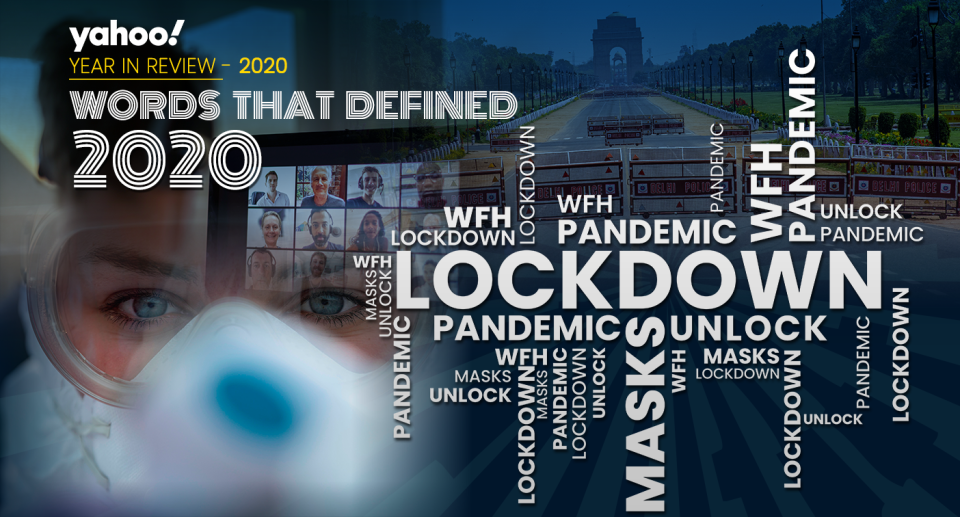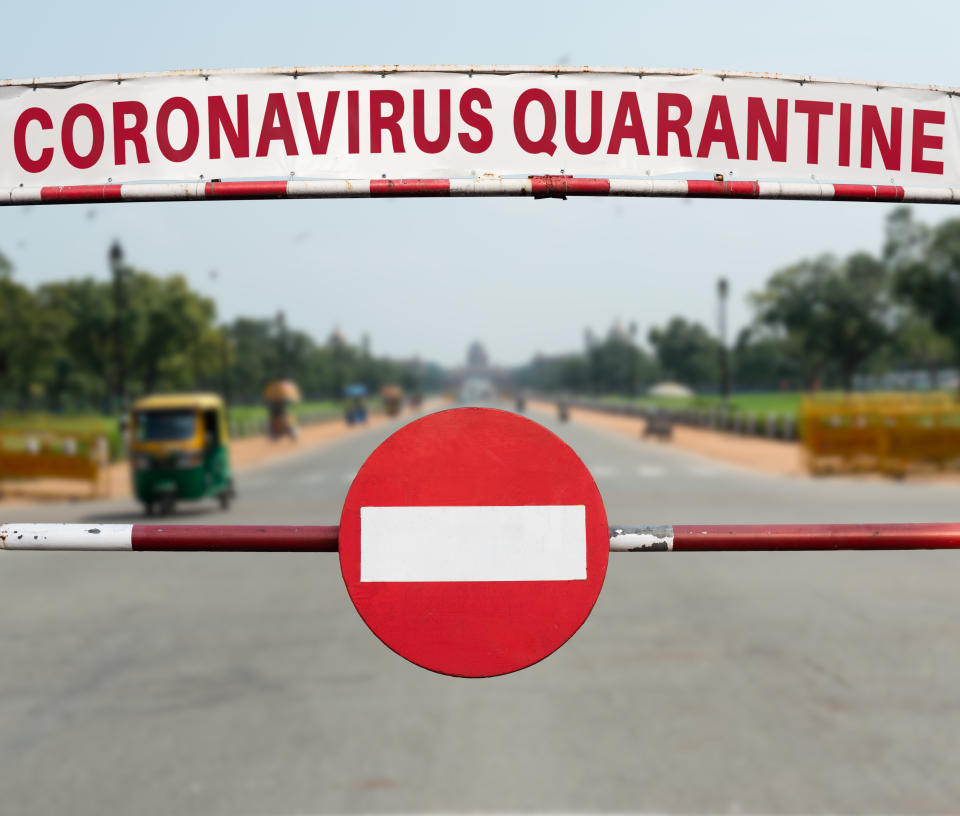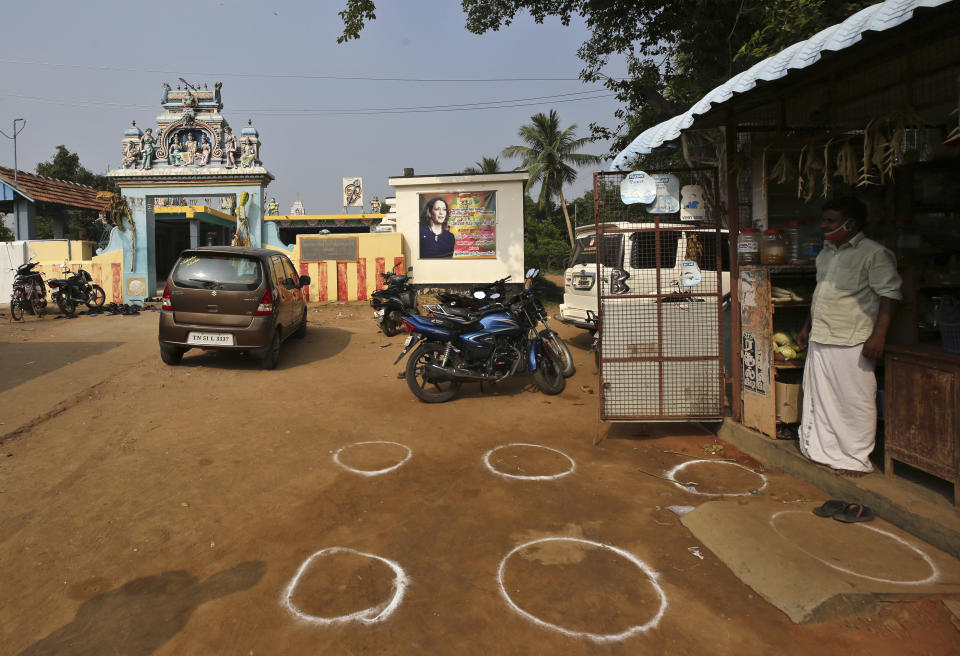YIR 2020: Words that defined the year and became a part of our daily lexicon

The Collins Dictionary has named ‘lockdown’ the word of the year. According to Collins, which defines the term as “the imposition of stringent restrictions on travel, social interaction, and access to public spaces” there has been a 6000 per cent increase in the usage of the word that has come to define our lives.
Much of the world entered into various stages of lockdowns after the World Health Organisation (WHO) declared COVID-19 a pandemic. In India, we learnt to live amidst stringent movement restrictions as PM Narendra Modi announced the first phase of lockdowns on March 25th, this year. This went on till the end of May until restrictions starting easing up from June.
On its way to being declared the word of the year, lockdown faced stiff competition from other terms and words which have come to dominate our daily vocabulary, especially since the start of the pandemic.
As 2020 draws to a close, let us take a look at the words that defined the year:
Pandemic: While there have been quite a few pandemics in history, very few have reached the scale that the COVID-19 pandemic has or received the coverage it has. Ever since the WHO declared COVID-19 a pandemic in March, the word has remained a part of our daily lexicon. In fact, one of the most Googled questions in India is will the pandemic ever end?

Quarantine: A rather depressing sounding word, which means refraining from any form of contact for a certain period of time, as a means of separating or restricting people who have infectious diseases, quarantines saw many of us spend large amounts of time in isolation. In many parts of the country, quarantines are the new normal for travel and is becoming a commonly used word, even in non-English speaking households.
COVID-19: The culprit behind the word of the year, and many other words that have become a constant part of our dictionary, COVID-19, the highly infectious disease caused by the most recently discovered coronavirus, has been wreaking havoc around the world.

Coronawarriors: One of the few positive words on the list, coronawarriors are those bravehearts who have worked relentlessly to ensure that the rest of us stay safe. Often putting their own lives at risk, these warriors include healthcare professionals, scientists, sanitation workers, the police, utility workers, delivery agents and everyone else who have brought hope at a time defined by gloom.
Mental health: Though not a new term, the pandemic has brought renewed focus on mental health. Long periods of isolation, the worry over one’s own health and that of our loved ones, financial stress over job losses and an uncertain future and the toll that COVID-19 takes on the mind, has led to greater discussions over mental health.

WFH: Work from Home, or WFH, till early this year, was reserved for the few lucky (or so people thought) ones who could work remotely. Enter 2020 and the pandemic, and companies and employees rushed to adjust to the new normal of working from home, amidst restrictions in movement.
However, over time, the novelty of working in one’s pyjamas, and the strain of way too many Zoom calls, has reduced the charm of WFH for many people. With organisations trying to squeeze out the most from employees, many are witnessing growing fatigue with working from home. Nevertheless, a large number of companies are looking at WFH as a permanent feature or at least the new normal for some time.
Herd immunity: A term many are hoping for - herd immunity happens when the majority of the people - at least 50 per cent of the population - has achieved immunity to the virus. However, in order for herd immunity ti work, at least half the population should be either vaccinated or already infected. So far, no country has successfully managed to achieve herd immunity from the virus. With the vaccines, hopefully, set to reach us in the near future, health experts are hoping that India attains herd immunity soon.
Masks: Earlier limited to superheroes, masks have become a part of our daily vocabulary and attire. Big brands such as Gap, FabIndia, Zara, et al, along with numerous smaller manufacturers and individuals are seeing the lucrativeness of the mask business. The internet is also full of DIY mask tutorials.
While, unlike the United States, politics has not gotten into the way of wearing masks in India, there is still a growing group of anti-maskers who believe that asking people to wear masks is infringing on their freedom.
Unlock: The opposite of the most used word this year, according to Merriam Webster unlock means to unfasten the lock of (something), to open or to free from restraints. As each phase of the unlock was announced by the Government, people have been waiting to see what restrictions are being lifted and what they can do. Some people also believe that with each unlock phase, the virus is no longer around us, and, hence, the level of negligence and carelessness has also increased.

Social distancing: A term which would have been considered impossible to follow, especially in a country like India where the concept of distance and space is very different. However, social distancing has become a part of our daily lives, and people are being advised to maintain a distance of six feet, wherever possible. In the early days of the lockdown, people and establishments found unique ways of ensuring social distancing - from wearing rings with six feet circumference around them, to drawing circles around in front of shops to notify people where they can stand.
While most people religiously followed the diktat in the early stages of the pandemic, all social distancing norms have been tossed into the wind, especially with the festive season, as thousands of people have been flocking to crowded markets.

 Yahoo Finance
Yahoo Finance 